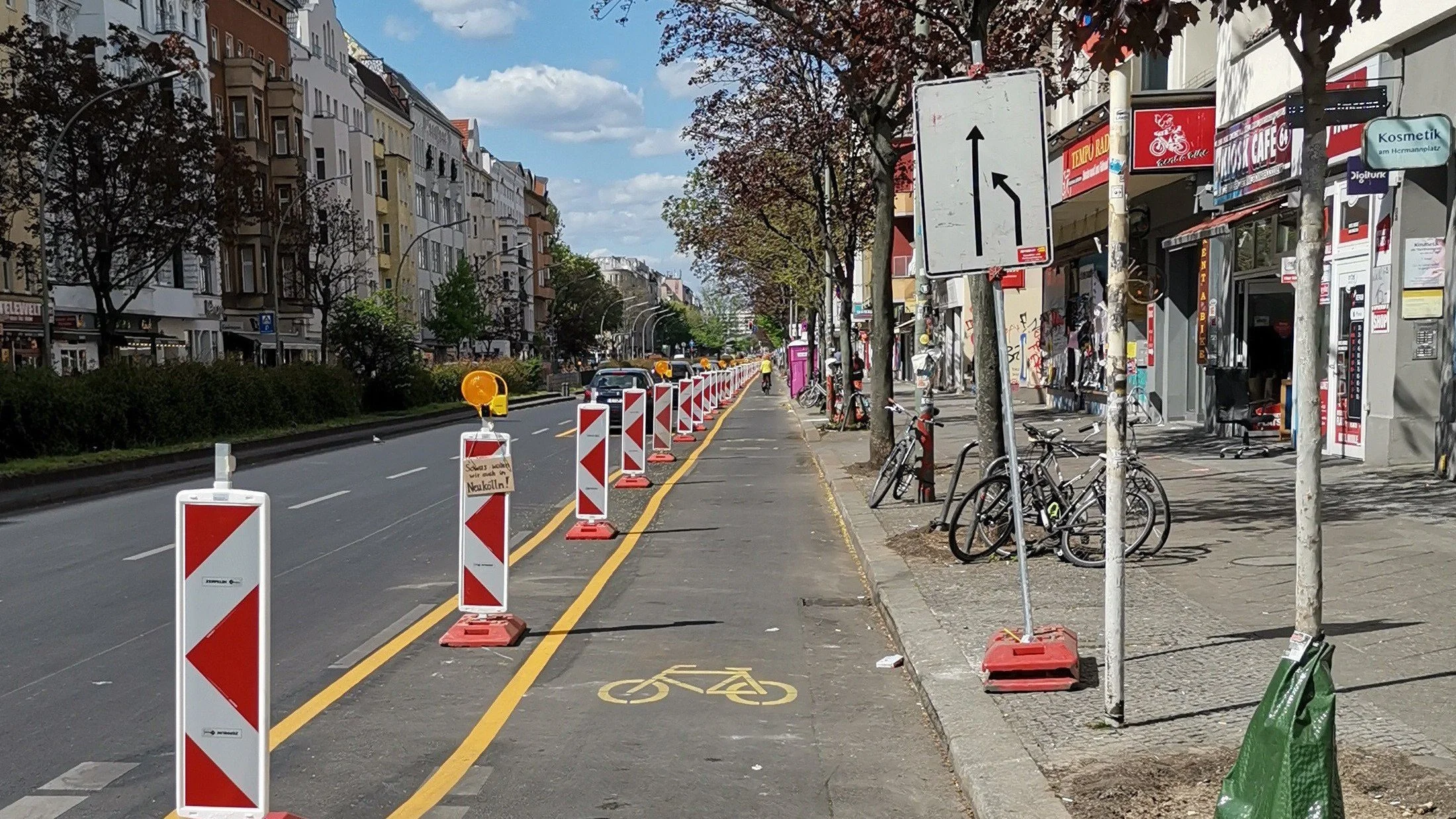Building Community Through Bike Rides
During the height of the COVID-19 pandemic, West Philadelphia resident Iresha Picot not only found herself with a lot more free time, but also a growing sense of isolation from everyone around her. Eager to get moving and to see people again, she began biking. Two years later, she launched Black Girl Joy Bike Rides, a bi-monthly, no-cost community ride aimed at connecting Black women in the city through cycling.
(Source: Black Girl Joy Bike Rides/Iresha Picot.)
“Biking during the pandemic brought me such joy,” Picot relayed. In fact, she attributes getting back on two wheels to Philadelphia’s pandemic-motivated street closures. Streets like Martin Luther King Jr. Drive, an urban highway adjacent to the city’s famed Fairmount Park, closed to motorized traffic for 17 months beginning in 2020 in order to encourage outdoor socialization without the heightened risk of viral transmission.
“As someone who hasn’t been on a bike in so long, I knew I wasn’t going to immediately go into the streets,” Picot confessed. MLK’s closure gave her—and thousands of Philadelphians—the opportunity to attempt cycling without the dangers of sharing the road with cars. “Not to mention, it was so good to see people again,” Picot said when she first started riding on MLK.
Eventually, she wanted to get friends and neighbors to join her but was met with resistance: “I learned most didn’t know how to ride a bike, didn’t own one, or had trouble affording Indego [Philadelphia’s bikeshare system].”
Luckily, she caught wind of a grant that would allow her to purchase Indego passes for prospective riders, effectively subsidizing their cycling. Several months after being awarded $2,000 through the Community Green Grant, Picot launched Black Girl Joy Bike Rides and is still going strong, having hosted the latest group ride the second Sunday of July.
So far, each ride has welcomed roughly 10 participants, ranging from ages 24 to 60, most of whom don’t cycle regularly. In fact, the variety of participants has shaped her reigning ethos: “No rider left behind.” The motto is more than an expression of patience on Picot’s part; it’s a call for everyone involved to meet each other “where they’re at.”
“I wanted to create this safe and encouraging environment,” she explains. “But above all, I wanted to make sure people understand that they don’t have to do this alone.” She’s witnessed participants step up to assist and elevate one another: a rider for whom technology is second nature assists another who is confused by Indego’s app; another struggling to keep balance gets guidance from a routine cyclist. It’s in these unprompted moments that Picot realizes she’s created something bigger than just a Sunday morning bike ride.
In fact, several participants who hadn’t cycled in decades until finding Black Girl Joy Bike Rides are now choosing two-wheeled travel more readily, both for recreation and for running errands. Others, including Picot, share that they’ve grown more cognizant of their behavior behind the wheel as a result of cycling semi-regularly.
At present, Black Girl Joy Bike Rides has the resources to continue through August. Whether or not Picot gets additional funding to stretch into the fall, she hopes her initiative inspires others—both in Philadelphia and across the country—to organize group rides with their friends. The press she’s gotten so far might certainly help. In fact, a recent ride welcomed a woman from St. Louis, Missouri. In Philadelphia to visit family, the out-of-towner stumbled across one of several profiles on Picot’s initiative and decided it was exactly what she needed to get to know people in a new city.
Picot is still surprised that her simple idea has garnered so much attention. “Honestly, I’m amused!” she laughed. “I thought I was just getting my girls to ride bikes but as soon as I launched it, I was getting called for interview after interview and I guess something about getting Black women on bikes really resonated with folks.”
(Source: Black Girl Joy Bike Rides/Iresha Picot.)
Perhaps the fanfare can be attributed to the fact that Picot’s group ride contests the stock stereotype of a cyclist, often derided as a “middle-aged man in lycra.” “It’s important to see stereotypes broken and there’s power in visibility,” explains John Simmerman, a specialist in behavior modification and the founder of Active Towns. “Group rides like this normalize what riding a bike can look like for people who may typically not see themselves as ‘cyclists.’”
Simmerman even shies away from the term “cyclist,” preferring “person on a bike.” He feels the former not only harbors negative connotations, but unnecessarily professionalizes a means of moving around that he’d like to see perceived as more quotidian. One of his favorite examples of what cycling can look like is the Portland Bike Bus movement. The brainchild of Sam Balto, a local teacher and safe streets advocate, the weekly bike bus sees more than 150 kids escorted to Alameda Elementary School by a team of parent volunteers on two wheels.
“There’s power in numbers. Both in safety and in visibility,” Simmerman said of the movement. “And whether it’s the bike bus or [Black Girl Joy Bike Rides] the opportunity to connect with your community by engaging in an activity like group rides can only be positive.”
Anyone interested in joining Iresha Picot’s Black Girl Joy Bike Rides can keep up with the schedule on her Instagram: @ireshadahoodtherapist.






Biking advocates often argue that cities should add bike infrastructure because it'll reduce congestion. Reality is harder to predict. Here's why you should shift away from reducing congestion arguments and what you could focus on instead.